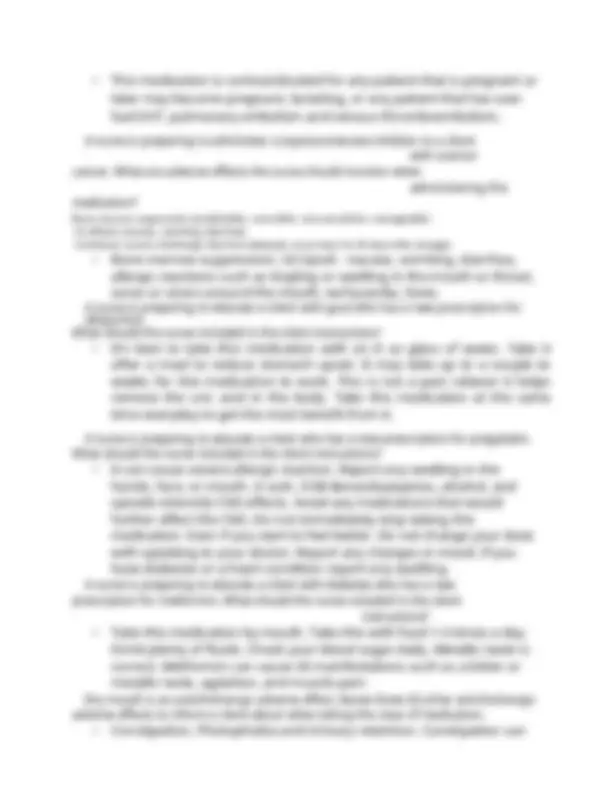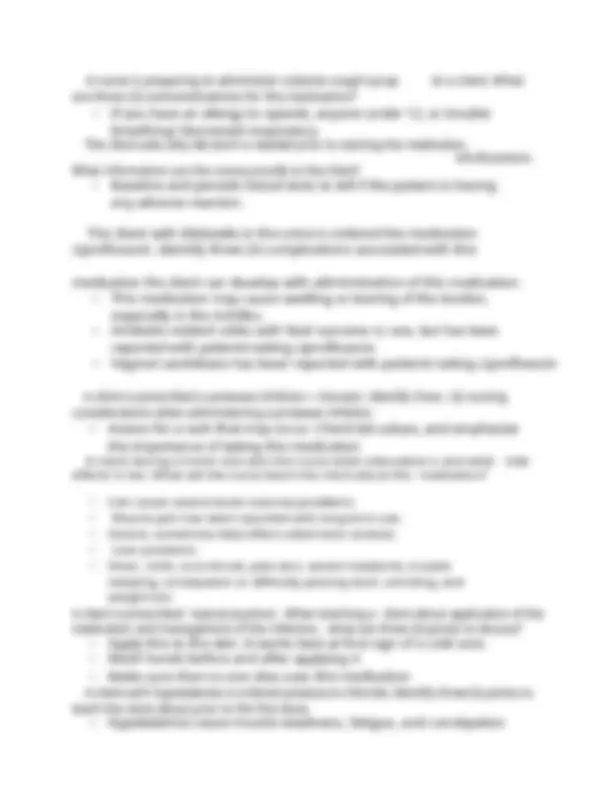





Study with the several resources on Docsity

Earn points by helping other students or get them with a premium plan


Prepare for your exams
Study with the several resources on Docsity

Earn points to download
Earn points by helping other students or get them with a premium plan
Community
Ask the community for help and clear up your study doubts
Discover the best universities in your country according to Docsity users
Free resources
Download our free guides on studying techniques, anxiety management strategies, and thesis advice from Docsity tutors
Clinical Pharmacology Competency Assessment for Nurses"
Typology: Exams
1 / 5

This page cannot be seen from the preview
Don't miss anything!




A nurse is preparing to administer ipratropium by metered dose inhaler. What adverse effects should the nurse instruct the client to monitor for?
burning, or painful urination, fever or chills, frequent urge to urinate, lower back or side pain, Black, tarry stools, chest pain, dark-colored urine, indigestion, large, hive-like swelling on the face, eyelids, lips, tongue, throat, hands, legs, feet, or sex organs, muscle cramps or spasms, muscle pain or stiffness, muscular pain, tenderness, wasting, or weakness, pale skin A nurse is caring for a client who has a new prescription forraloxifene. What are contraindications for this medication that the nurse should discuss with the client?
be relieved by taking stool softeners or drinking prune juice. Photophobia can be managed by use of sunglasses. Urinary retention may be reduced by urinating before taking the medication A client with an upper respiratory infection is prescribed guaifenesin. Identify two (2) teaching points to discuss with the client prior to administering this medication.
A nurse is preparing to administer codeine cough syrup to a client. What are three (3) contraindications for this medication?